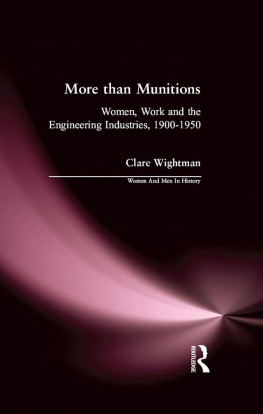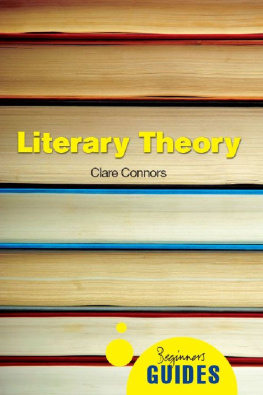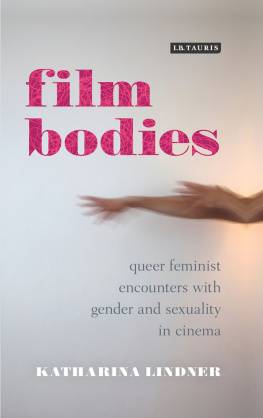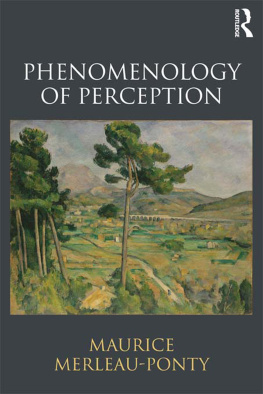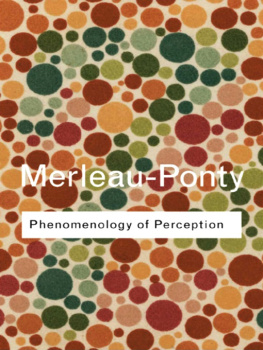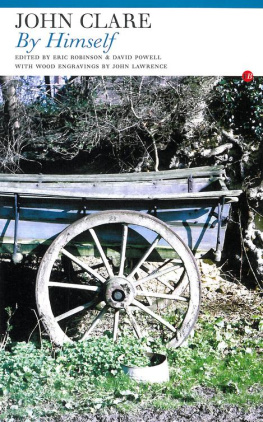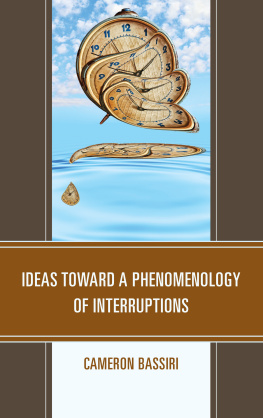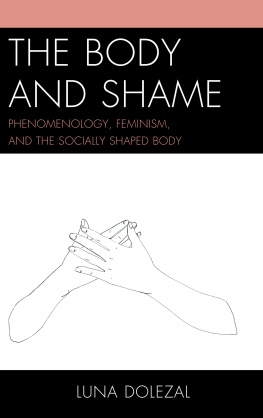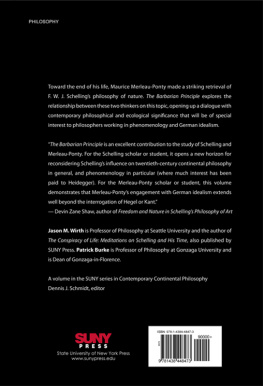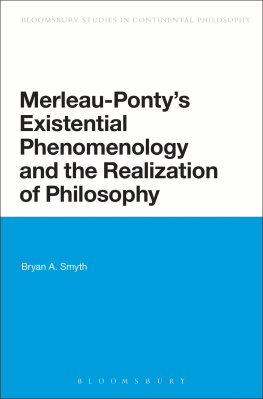Feeling Cold: Phenomenology, Spatiality, and the Politics of Sensation was originally published in differences 24, no. 1: 17293. Copyright 2013, Duke University Press. All rights reserved. Republished by permission of the publisher. www.dukeupress.edu.
Published by State University of New York Press, Albany
2019 State University of New York
All rights reserved
Printed in the United States of America
No part of this book may be used or reproduced in any manner whatsoever without written permission. No part of this book may be stored in a retrieval system or transmitted in any form or by any means including electronic, electrostatic, magnetic tape, mechanical, photocopying, recording, or otherwise without the prior permission in writing of the publisher.
For information, contact State University of New York Press, Albany, NY
www.sunypress.edu
Library of Congress Cataloging-in-Publication Data
Names: Clare, Stephanie D., 1980- author.
Title: Earthly encounters : sensation, feminist theory, and the anthropocene / Stephanie D. Clare.
Description: Albany : State University of New York Press, [2019] | Series: SUNY series in gender theory | Includes bibliographical references and index.
Identifiers: LCCN 2018045645 | ISBN 9781438475875 (hardcover : alk. paper) | ISBN 9781438475899 (e-book)
Subjects: LCSH: Senses and sensation. | Feminist theory.
Classification: LCC BF231 .C53 2019 | DDC 305dc23 LC record available at https://lccn.loc.gov/2018045645
10 9 8 7 6 5 4 3 2 1
Theory can be a dew that rises from the earth and collects in the rain cloud and returns to earth over and over. But if it doesnt smell of the earth, it isnt good for the earth.
Adrienne Rich, Notes toward a Politics of Location
I am not burying myself in a narrow particularism. But neither do I want to lose myself in an emaciated universalism. [] My conception of the universal is that of a universal enriched by all that is particular, a universal enriched by every particular: the deepening and coexistence of all particulars.
Aim Csaire, Letters to Maurice Thorez
Acknowledgments
Day after day, and all day long, Simone de Beauvoir writes in her Memoires dune jeune fille range , I measured myself against Sartre. In a reading of this passage, Michle Le Doeuff points out that philosophy is precisely not about shining, but rather about learning. It is not about being imperious, but rather about being curious. In this way, although Beauvoir claims that Sartre will always be the philosopher, not herself, at the same time she suggests that something in Sartres mode of arguing, thinking, or presenting himself is both not properly philosophical and yet often constitutive of the field.
When I began this project, I thought that writing a book had to be about shining, not learning; an author had to be imperious, not curious. As a result, I did not believe that I could actually finish this project. My feelings of insufficiency were familiar to me. As a white woman, I often feel confident in my role as a teacher (especially in smaller classrooms). Privileges of race and class significantly support that confidence. Yet it is hard to see myself as a writer and researcher. As a result, I often give up, write less, and remain altogether silent, trying to hide. This is not a personal failing. Feminists and critical race scholars have made it clear that epistemic confidence is structural.
Within this context, I especially want to thank those who made institutional, intellectual, and personal space for me to write and those who helped me to understand that I could write even if I preferred learning to shining. I am grateful to Elizabeth Grosz whose joy, humility, care, and brilliance carried me through my PhD, and inspires me still today. Amber Jamilla Musser provided crucial feedback and emotional support necessary for completing this project. She continues to model how to approach intellectual work with resolve, creativity, and pleasure. I am also beholden to the feminist scholars at the University of Oxford, especially Ros Ballaster and Deborah Cameron, who donated their time to run the MSt in Womens Studies and who applied for the funding that became my postdoctoral fellowship. The support of Ranjana Khanna and Priscilla Wald came at a crucial period for me; it was under their guidance that I realized this material could become a book. Finally, although my time at the University at Buffalo was brief, Ewa Plonowska Ziareks palpable love of feminist theory coupled with her decision to work with me ( Me? , I remember thinking) propelled me to complete this project. Each of these feminist scholars is known for publishing many important works; their support of emerging scholars is less widely visible, but I am incredibly grateful to have benefited from it. Thank you.
It feels as though I wrote this book on the road, packing and unpacking suitcases and boxes, scavenging for furniture, forks, and friends. As I traveled from Montral to Oxford, from Highland Park to New York City, Durham, Buffalo, Syracuse, and finally to Seattle, I found many whose support has become invaluable. At Rutgers University, I was lucky to learn from many dedicated, passionate and brilliant scholars and students, especially, but not only, in the Department of Womens and Gender Studies: Agatha Beins, Ashley Glassburn Falzetti, Anahi Russo Garrido, Jodie Barker, Leigh-Anne Francis, Laurie Marhoefer, Andy Mazzaschi, Anel Mndez Velzquez, Stina Soderling, Sonja Thomas, Shakti Jaising, Nimanthi Rajasingham, Elizabeth Grosz, Carlos Decena, Jasbir Puar, Harriet Davidson, and Carolyn Williams. From my time at Rutgers, I am especially grateful to Agatha Beins, inspired by her attention to detail and to the seemingly mundane yet fundamental elements that sustain us.
The University of Oxford twice took me in and built me up, literally feeding me when I needed it. Over many cups of tea and across endless conversations, the Oxford polymorphous perverts, Amber Jamilla Musser, Niamh Duggan, Marcie Bianco, Joanna Cupano, Irene Revell, and, when she visited, Sophie Green, recalibrated the world for me. They showed me that I had value, and they gave me vision. I would not have written a book were it not for their support. When I returned to Oxford almost ten years later, I once again found sustenance. Many thanks especially to Pelagia Goulimari, who told me to keep my eye on the ball; to Pamela Sue Anderson, from whom I was lucky to learn about the politics of confidence just before she passed away (far too early, far too quickly); to St. Hildas College, which fed me (an extra thank you!); to Idalina Baptista; and to my students, especially Lilith Acadia, Kate Turner, Mel Stewart, and Julia Tanner.
As I moved between New Jersey, Oxford, North Carolina, and Buffalo, Syracuse, NY became my home. I am now based in Seattle, but I am grateful for all the love that was granted to me in that Central New York town, especially as I weathered the academic job market and decided to continue to pursue academic work. Thank you to Susan Branson, Lori Brown, Peter Couvares, Julie Gozan, Mary Hagemann, Paul Hagenloh, Kate Hanson, Chris Hanson, Mark Heller, Samantha Kahn Herrick, Martin Hogue, Tom Keck, Laurie Marhoefer, Gladys McCormick, Erin Rand, and Diane Williamson. Thank you also to the four-footed crew: Tigger, Biscuit, Stache, and Zoe, especially for their (albeit uneven) companionship across icy trails, and to the little onesthough quickly no longer little: Sasha Gozan-Keck, Ruby Gozan-Keck, Amelia Couvares, and Lucia Couvares. You have reminded me to be playful, even in my writing.


